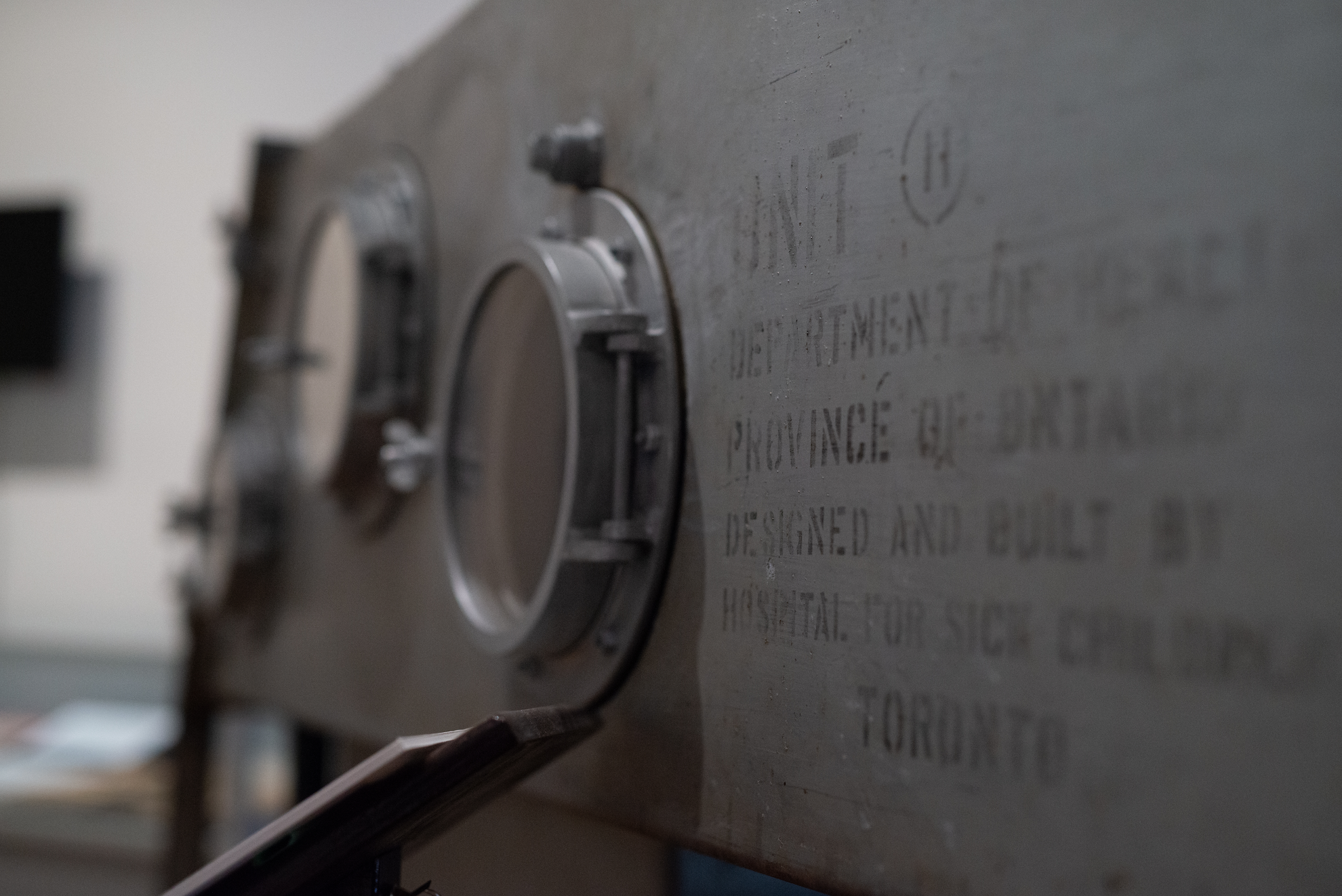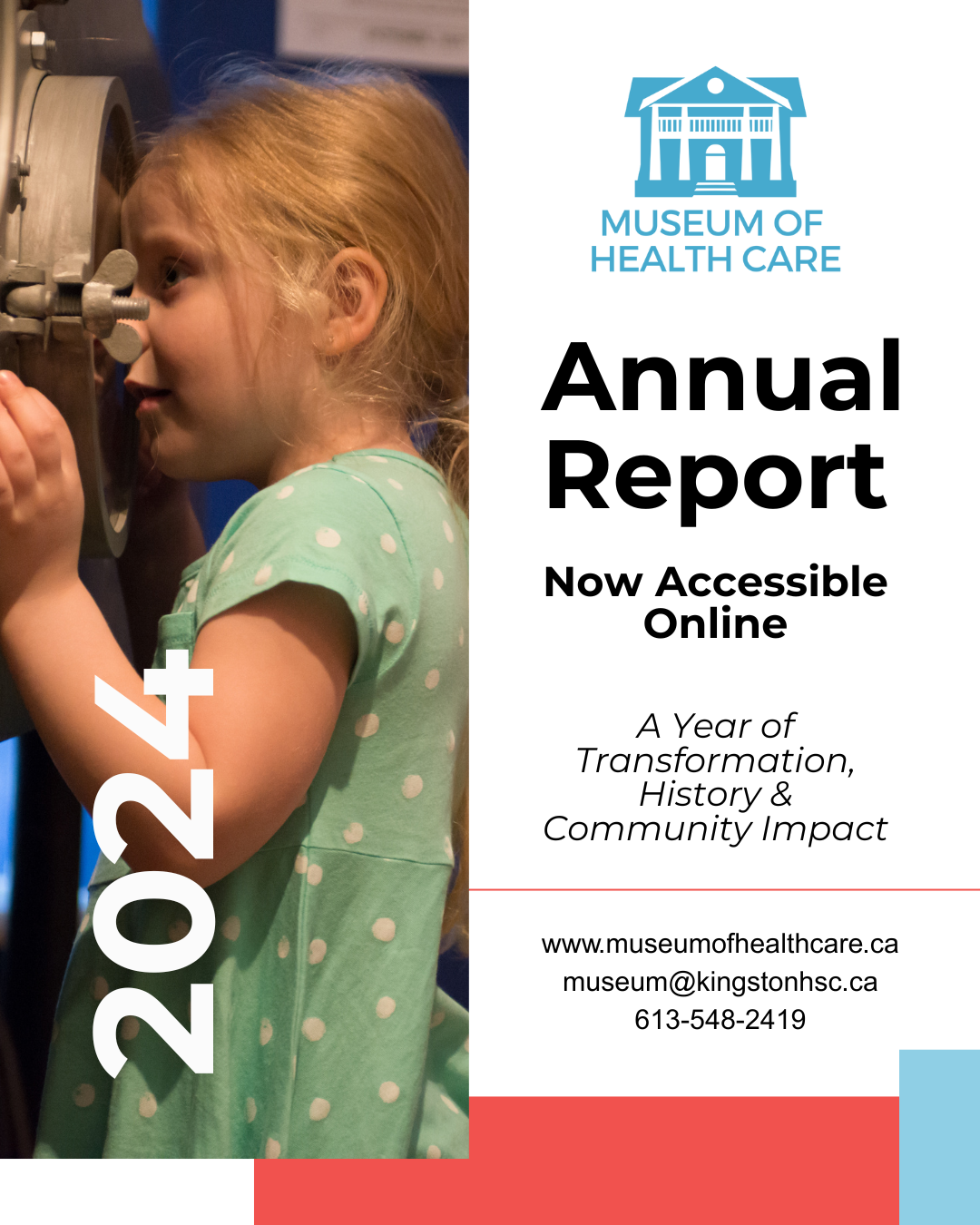OUR MUSEUM
Established in 1991, the Canadian Museum of Health Care is an independent, registered charity committed to preserving and sharing the rich history of health and medicine in Canada. Today, it houses the country’s largest collection of medical artifacts, tracing the evolution of health care from the 1750s to the present day. Located in the historic Ann Baillie Building — a 1904 National Historic Site on the grounds of Kingston General Hospital — the museum invites visitors to explore how people have understood and treated disease, managed pain, and provided healing through time.
About Us
-
Our Mission
The Canadian Museum of Health Care preserves and shares stories of health, medicine, and community in Canada, revealing how the past shapes our experiences of care today.
-
Our Vision
To spark conversations about the history of health care in Canada— inspiring generations and fostering reflection on the human experience of health, medicine, and caregiving.
Strategic Plans
Download and read our Strategic Plans to learn how the Canadian Museum of Health Care is advancing its mission and evolving to meet the needs of our communities and sector. Each plan reflects our priorities, challenges, and aspirations at key points in our development.
2023–2026 Strategic Plan (PDF)
Focuses on expanding national reach, fostering inclusive practices, investing in infrastructure, and enhancing public impact.2017–2021 Strategic Plan (PDF)
Emphasizes improving governance, strengthening collections management, and deepening local engagement.2012–2016 Strategic Plan (PDF)
Outlines goals for organizational sustainability, visitor growth, and broader recognition of the museum’s national role.
Annual Reports
Our Annual Reports provide a transparent look at the Canadian Museum of Health Care’s activities, accomplishments, and financial stewardship each year. They reflect our ongoing efforts to care for Canada’s health care heritage while engaging diverse communities through exhibitions, research, and public programs.
2023 Annual Report & Financial Statements (PDF)
A year of momentum—program expansion, strengthened partnerships, and national strategic positioning.2022 Annual Report & Financial Statements (PDF)
Showcased innovation in virtual programming and the Museum’s role in national conversations on health.2021 Annual Report & Financial Statements (PDF)
Focused on recovery, resilience, and rebuilding post-pandemic through digital outreach and core operations.2019 Annual Report (PDF); 2018 Annual Report (PDF); 2017 Annual Report (PDF)




